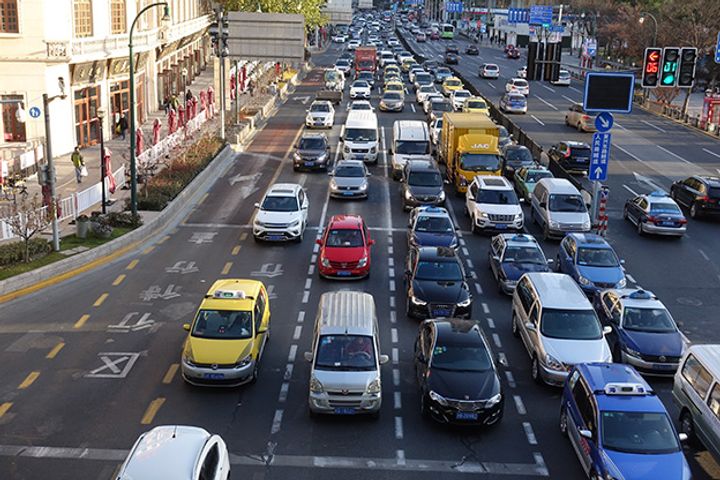 Chinese Cities Delay Stricter Auto Emissions Standards as Local Carmakers Struggle to Keep Up
Chinese Cities Delay Stricter Auto Emissions Standards as Local Carmakers Struggle to Keep Up(Yicai Global) Dec. 25 -- Major Chinese cities are delaying plans to bring in sixth-generation vehicle emissions standards as domestic manufacturers do not yet have the capacity to make cars that meet the new requirements.
Shenzhen, in southern Guangdong province, is the most recent city to postpone plans to adopt the new China 6a standards after putting their introduction back to July 1 next year, following similar moves made by Beijing, Guangzhou and Tianjin. China's island province of Hainan was supposed to bring in the new rules on Nov. 1, but still has not implemented them.
The nationwide rollout of the new standards, named China 6, is set to take place over two phases. China 6a standards for licensing and registration are due to be fully implemented from July 1, 2020 while the second stage, China 6b, is set to be in place three years later and will require carmakers to cut carbon dioxide and hydrocarbon emissions by as much as half.
The China 6b standards are even tougher than those under European equivalent Euro 6. Under Euro 6 standards, carbon monoxide emissions cannot exceed one gram, nitrogen oxide emissions cannot exceed 0.06 grams and particulate matter emissions cannot exceed 0.05 grams. Under China 6b, those figures become 0.5 grams, 0.035 grams and 0.03 grams.
China 6b is "one of the world's strictest standards," according to Mei Songling, a senior automotive analyst, putting the regulations on par with the United States' new Tier 3 standards due to come into play in 2020.
Cutting Emissions Means Cutting Costs
"It is very difficult for China's domestic auto brands to meet the new standards," Yin Chengliang, director of Shanghai Jiao Tong University's Energy Research Institute, told Yicai Global. International automakers are much stronger than Chinese companies in terms of saving energy and reducing emissions, and it can be seen from the list of cars that meet these standards that local firms are at a disadvantage, he added.
A recently published list of all cars which meet the new standards contains 276 cars -- but only 20 are made by independent Chinese firms. Yin believes that given the recent decline in the world's largest auto market -- its first since the 1990s -- it is reasonable to delay the new standards to try and encourage growth next year, even if the recovery is only slight.
Carmakers need a lot of time to produce a vehicle that fully meets the new standards, added a South Korean engineer, who said the new requirements demonstrate the high level of attention China is paying to environmental protection but neglect to address challenges for manufacturers.
An engine could cost twice as much as one under the old standards, the head of an independent carmaker said, adding that this will have a major impact on manufacturers who use low prices to capture a share of the market.
Jochem Heizman, the soon-to-retire chief executive of Volkswagen China, told Yicai Global in an earlier interview that the new regulations will be problematic in terms of money and technology for local carmakers. He hopes the government will transition into the new standards to give manufacturers a chance to adjust.
Editor: James Boynton